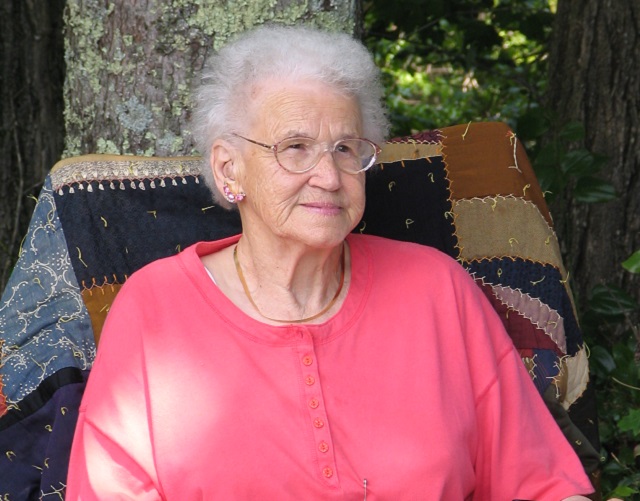In my last post I took some time to consider the ideas of legacy and success from a Christian perspective. When I die, how will people remember me? What will be my mark on the world? What impact will I have made on the lives of others?
I didn’t know at the time how apropos those words would be. Last Tuesday my grandmother died. On Saturday I gave the eulogy at her funeral. She was 94 years old.
My grandmother, or Maw Maw as I called her, grew up and lived her life in a world far removed from the ivory tower. Hers was a life of hard, simple living in the rural woods of West Virginia.
I don’t think she ever signed an autograph, but you should have seen how many people came to pay their respects this weekend. She wasn’t one much for fine dining, but her biscuits and gravy were out of this world.
She was not a lady of letters, but she possessed godly wisdom that drew others to her for practical counsel. She didn’t speak to lecture halls full of students and scholars; she spoke to the Lord daily in the early morning hours of her prayer closet.
I never knew my grandmother to seek the spotlight or accolades, but she was by every single account at her funeral a woman tremendously admired and respected.
I have a pretty good feeling that without her prayers and those of my own mother, God would have had to work a little harder to get ahold of me in my late teen years.
She loved the scriptures and read them faithfully, even when her mind started to slip late in her life. She knew the deep truths of seeking and trusting the Lord.
On the day she died, the nurses at the home where she lived came in and asked her was there anything she needed. “No,” she told them, “but is there anything I can do for you?” Those were the last words anyone heard her speak. She was pressing on as a servant of Christ until the very end.
I love the intellectual life. I thrive in an environment where people take academic learning seriously. But my Maw Maw had answers to questions that the world’s greatest minds will never understand.
God has a different calling and context for all of us. In my journalism classes, we often talk about the power of journalists to tell the untold stories. I don’t expect I’ll ever be able to pluck and clean a wild turkey, but if I can help students find their own stories of folks like my grandmother, Lucinda Vest Upton, then I’m good with that.
Image: Lucinda Vest Upton, photo courtesy of Jeff Neely
Jeff Neely is an assistant professor of journalism at The University of Tampa, where he teaches courses in newswriting, feature writing, multimedia journalism and literary journalism. His research has examined the role narrative and literary journalism can play in broadening our understanding of various issues and experiences life brings our way, from identity formation to environmental ethics. He has also studied how youth journalism programs, where young people tell their own stories and those of their peers, can help strengthen local communities. He is currently working with local non-profit outreach organizations to build a youth journalism program called Tampa Youth Voice. Prior to entering academe, Jeff worked as a writer and editor for various publications in and around the Tampa Bay area, as well as a case manager and resource development specialist for the Florida foster care system.


Leave a Reply